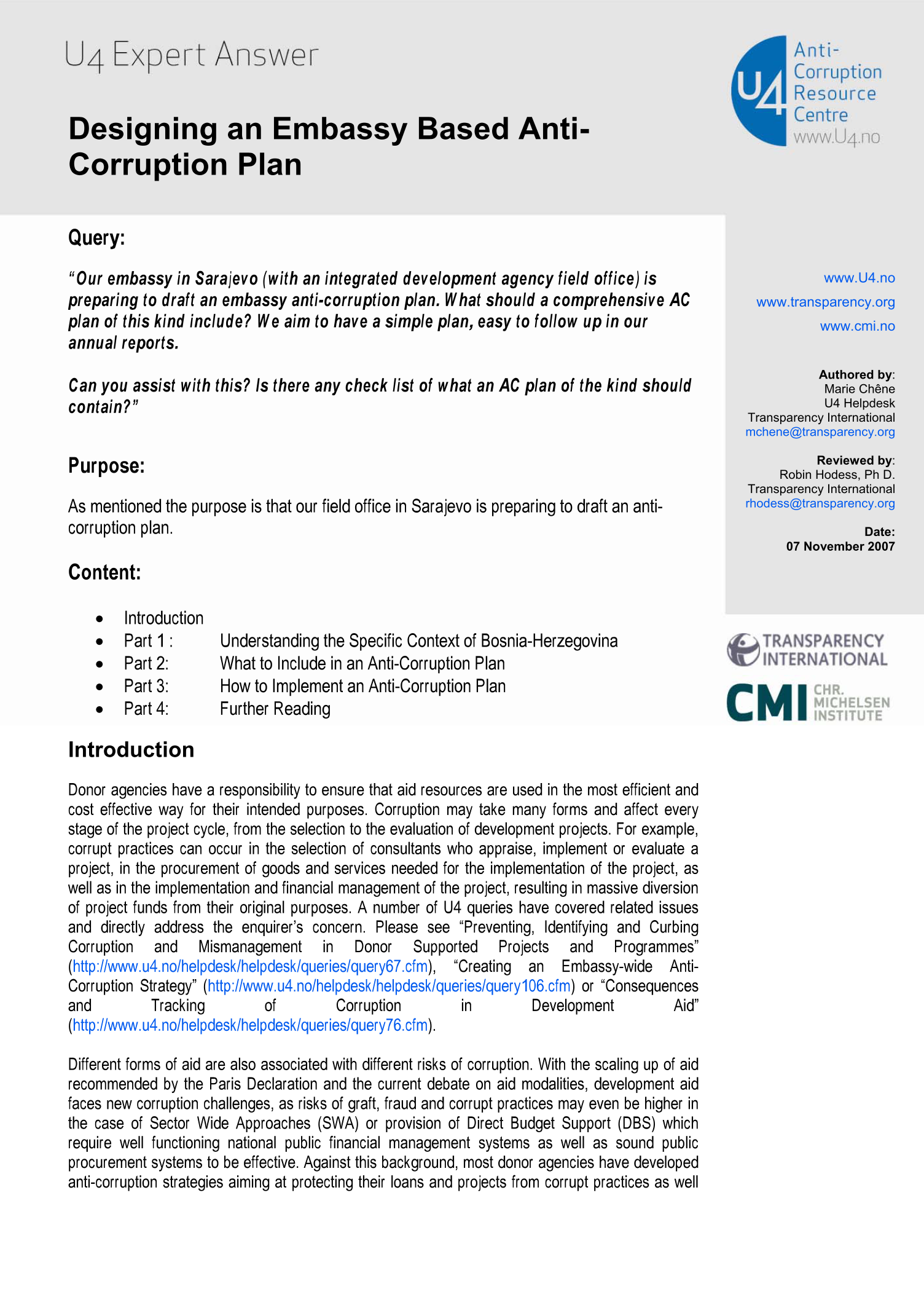U4 Helpdesk Answer
Designing an embassy based anti-corruption plan
Bosnia-Herzegovina faces serious corruption challenges with weak and inefficient integrity structures to combat it. Research findings indicate that corruption is especially prevalent at the local level, where the majority of contacts between citizens and public administration take place, while political corruption undermines the political will to fight against corruption. At country level, embassies can first work against corruption by establishing clear in house ethical standards and prevention mechanisms through internal and external accountability mechanisms like independent audits, investigations and reporting controls. They can also take appropriate measures to safeguard development projects, programmes and loans from corruption. In this regards, anti-corruption plans primarily focus on improving the project design process, promoting greater disclosure and increased participation as well as strengthening the monitoring and supervision of development projects. An effective anti-cor

Cite this publication
Chêne, M. (2007) Bergen: U4 Anti-Corruption Resource Centre, Chr. Michelsen Institute (U4 Helpdesk Answer Helpdesk 2007)
Disclaimer
All views in this text are the author(s)’, and may differ from the U4 partner agencies’ policies.
This work is licenced under a Creative Commons Attribution-NonCommercial-NoDerivatives 4.0 International licence (CC BY-NC-ND 4.0)